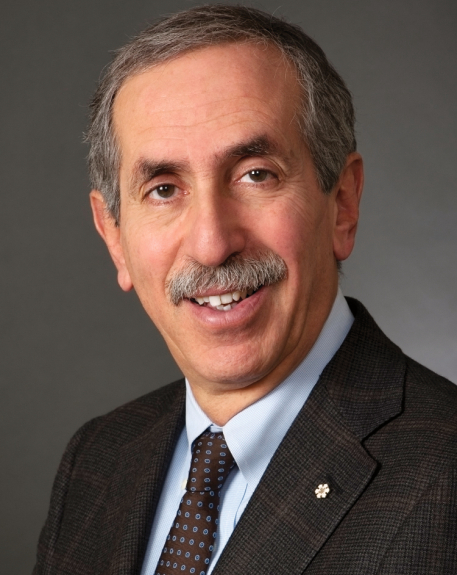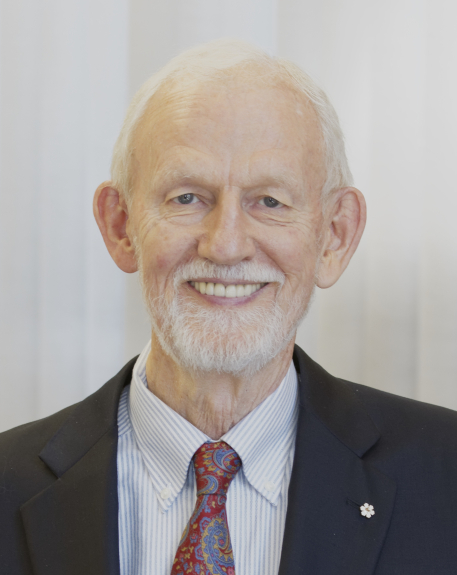2012 INDUCTEE Lap-Chee Tsui, PhD Cells, Genetics & Genomics, Science and Research
December 21, 1950
(Shanghai, China)
PhD, University of Pittsburgh (1979)
2018: Warren Alpert Foundation Prize
2016: Grand Bauhinia Medal
See All AwardsAwards & Honours:
2018: Warren Alpert Foundation Prize
2016: Grand Bauhinia Medal
2014: Henry G. Friesen International Prize in Health Research
2011: Gold Bauhinia Star
2007: Knight of the Légion d’honneur (France)
2002: Killam Award
2000: Order of Ontario
1992: Doctor of Science honoris causa, The Chinese University of Hong Kong
1992: Distinguished Scientist Award, The Canadian Society of Clinical Investigators
1991: Officer of the Order of Canada
1991: Fellow of the Royal Society of London
1991: Doctor of Science honoris causa, University of New Brunswick
1991: Doctor of Civil Law honoris causa, University of King’s College
1990: Fellow of the Royal Society of Canada
1990: Gairdner International Award
1989: Gold Medal of Honour, Pharmaceutical Manufacturers Association of Canada
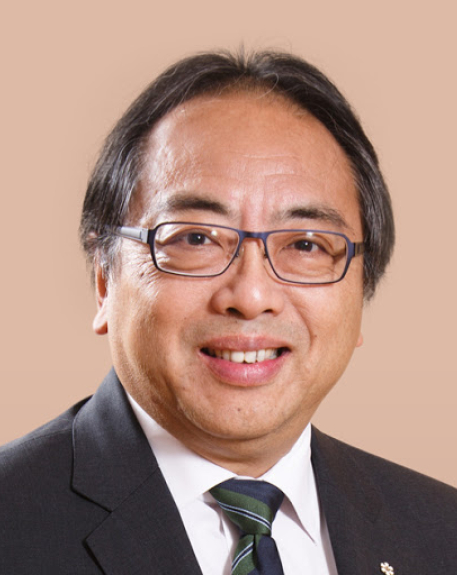
Identified the gene that causes cystic fibrosis
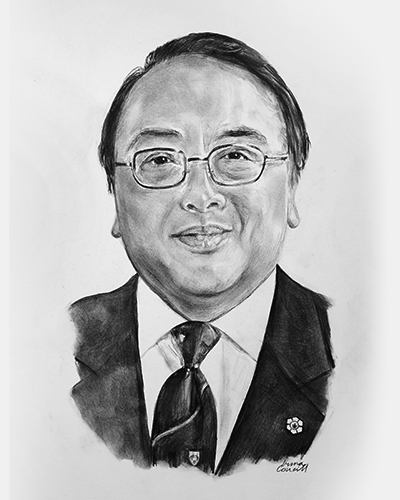
A pioneering leader in the field of genomics
Driven by a commitment to science, and a creative approach to difficult problems, Lap-Chee Tsui has made extraordinary contributions to science through his discoveries and is a leader in developing the field of genomics both in Canada and internationally. The march to discover the cystic fibrosis gene began when he arrived at Toronto's Hospital for Sick Children and applied a new technology called genetic linkage to map the gene causing cystic fibrosis to chromosome 7. His subsequent work, in collaboration with Dr. John Riordan and Dr. Francis Collins led to the identification of the mutated gene and its encoded protein which they called the "cystic fibrosis transmembrane conductance regulator". It was the first gene identified through linkage mapping, a proof-of-principle for the human genome project.
Key Facts
The discovery of the cystic fibrosis gene has been described as the most significant breakthrough in human genetics in 50 years
The three articles that announced the discovery of the cystic fibrosis gene have become “citation classics”
Became a leader in the Human Genome Project in Canada and the world with particular emphasis on chromosome 7 and disease genes mapping to that chromosome
After six years as Geneticist-in-Chief at the Hospital for Sick Children, Dr. Tsui was appointed President and Vice-Chancellor of the University of Hong Kong, serving 12 years in that position
Published over 300 scientific papers and 65 book chapters, and served on the editorial board of 24 scientific journals
Among his many awards, Dr. Tsui was the recipient of 16 honorary doctoral degrees from prestigious universities around the world
Professional timeline
Impact on lives today
Building on the foundational work completed in the discovery of the CF gene, Lap-Chee Tsui has remained a leading figure in CF research. The identification of the CF gene provides hope for diagnosis and treatment and his work on mapping Chromosome 7 has led to further discoveries by his group in Toronto and by many collaborators around the world. His laboratory also developed the free-chromatin mapping method and pioneered other techniques that have made a huge impact in genomics. His successful legacy will not only be measured as a researcher but also in shaping future leaders of human genetics research.
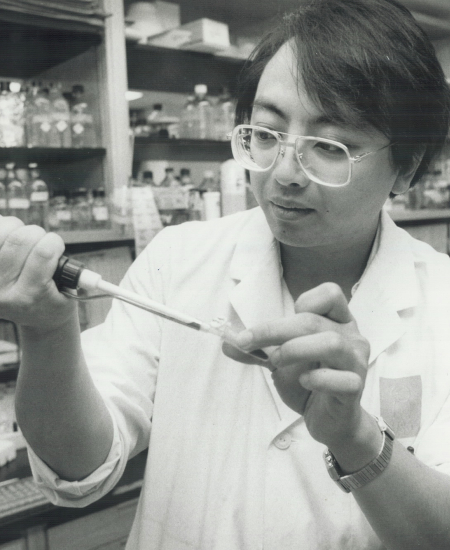
2026
-
Dr. Tsui and his wife Ellen relocated to Toronto to be closer to their sons and grandchildren
-
Following his two terms as President of the University of Hong Kong, Dr. Tsui carried on as President of the Academy of Sciences of Hong Kong.
Leadership in Organizational DevelopmentHe also served as President of the Victor and William Fung Foundation, Director of Qiushi Academy for Advanced Studies and Master of the Residential College of International Campus of Zhejiang University.
-
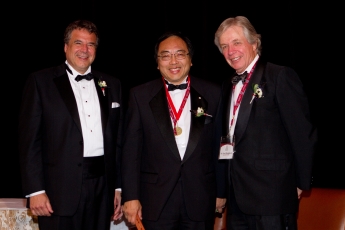
Lap-Chee Tsui inducted into the Canadian Medical Hall of Fame
Toronto, Ontario
-
Named one of the Ten Giants of Science by the Faculty of Medicine at the University of Toronto
-

Was appointed President and Vice Chancellor of the University of Hong Kong
Leadership in Organizational DevelopmentOver 12 years in that position he led the University through a series of governance and management reforms, human resource reforms, and strategic developments in research, teaching and learning.
-

Was appointed Geneticist-in-Chief at the Hospital for Sick Children, succeeding Dr. Ronald Worton, and before him, Dr. Lou Siminovitch, both Laureates of the Canadian Medical Hall of Fame
Leadership in Organizational Development, Cells, Genetics & GenomicsIn that role Dr. Tsui led the field in cataloguing all mutations identified in the CFTR gene and determining their biological significance. With former student Steve Scherer, they provided international leadership to the mapping of other disease genes on chromosome 7.
-

Recognized for his significant contributions to human genetics, appointed Associate Editor of the American Journal of Human Genetics
Leadership in Organizational Development, Cells, Genetics & GenomicsLater, Dr. Tsui served on the Board of Directors of the American Society of Human Genetics.
-
The discovery of the CFTR gene defective in cystic fibrosis was published in three foundational papers in Science magazine and received worldwide acclaim as the first disease gene to be identified through linkage mapping and positional cloning
Cells, Genetics & Genomics -
Dr. Lap-Chee Tsui completed a four-year tour-de-force to map the cystic fibrosis gene to a position on human chromosome 7
Science and Research, Cells, Genetics & Genomics -
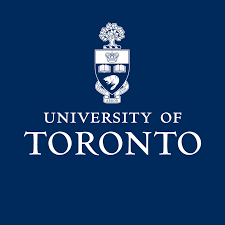
Joined the Hospital for Sick Children’s Department of Genetics and Research Institute as well as became a faculty member of the Department of Molecular and Medical Genetics at the University of Toronto
Cells, Genetics & Genomics -
Graduated with a Bachelor and Masters degree in Biology from The Chinese University of Hong Kong and a PhD in biological sciences from the University of Pittsburg
Dr. Tsui then came to Canada as a postdoctoral fellow in the Department of Genetics at the Hospital for Sick Children in Toronto.
1981
He is an insightful, creative and scientific visionary.

